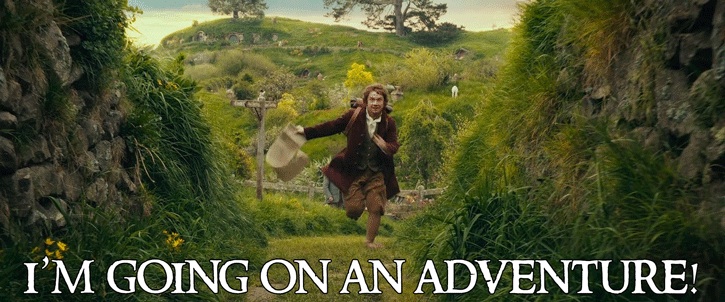
You can thank, or maybe blame, Joseph Campbell and George Lucas for popularizing the concept, but it seems like every story these days has to be about the “Hero’s Journey.” If a tale worth telling is going to happen, the protagonist has to leave the comfort of his familiar life and venture out into the unknown.
Luke Skywalker has to be taken from his humdrum life as a Tatooine moisture farmer before he can save the Galaxy from Imperial tyranny. Bilbo Baggins is torn out of his comfortable provincial lifestyle, the Pevensie children are whisked away to a magical world; in each case the hero must leave behind their mundane everyday existence in order to discover their true potential.
Campbell’s description of a Hero – “someone who has given his or her life to something bigger than oneself” – also happens to be a pretty good summary of what every Christian is called to be. Specifically we are called to give our lives to Christ, which means giving it over to God, which means service to all that is and was and will be. Which is, in fact, bigger than any one of us. And as the Pilgrim Church, we are all on a journey to Salvation.
The first two readings this week remind us that the God-centered life is not about comfort and security. “Hard of face and obstinate of heart are they” to whom Ezekiel is sent to preach. And Saint Paul is “content with weaknesses, insults, hardships, persecutions, and constraints for the sake of Christ.” We are given the challenge of this spiritual adventure, but also given the grace to see it through.
In the Gospel, Jesus declares that “a prophet is not without honor except in his native place and among his own kin in his own house.” The mundane and the everyday is also familiar and safe, and those who never venture beyond their own comfort zone don’t want to hear about what’s out there. Especially when a local boy returns home with new and outlandish ideas. “Where did this man get all this?” they ask. We’re told they even “took offense at him.”
It reminds me of the early chapters of the Lord of the Rings, where the ordinary hobbit folk sit around the Green Dragon Inn discussing strange goings-on beyond their borders. They dismiss and laugh off such things as tall tales not worth worrying about. But (And SPOILER ALERT; this part that wasn’t in the movie!) by the end, the events from the outside have infected even their quiet, bucolic corner of the world.
Tolkien himself identified primarily with the hobbits, preferring a simple life of food and good cheer. But he also understood Humanity and the spiritual brokenness of this World. He knew that, when Evil asserts itself, we can’t hide from it. We can’t ignore it and hope it goes away. A Christian has to be ready to face the challenge.



